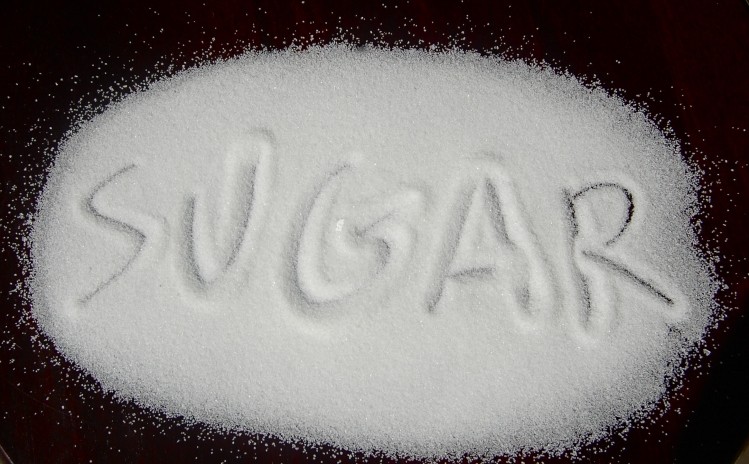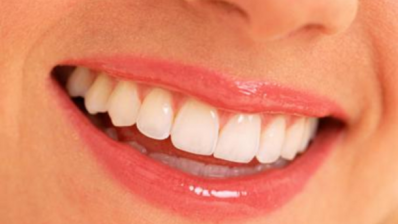Researchers call for ‘radical rethink’ of free sugars targets

The study, published in BMC Public Health, analysed the effect of sugars on tooth decay (dental caries) – finding that sugars are the only cause of tooth decay in children and adults.
Led by Professor Aubrey Sheiham from University College London, the team used public health records from countries across the world to compare dental health and diet over time across large populations of adults and children. They found that the incidence of tooth decay was much higher in adults than children, and increased dramatically with any sugar consumption above 0% of energy.
Even in children, an increase from near-zero sugar to 5% of energy doubles the prevalence of decay and continues to rise as sugar intake increases, said the team.
"Tooth decay is a serious problem worldwide and reducing sugars intake makes a huge difference." said Sheiham. "Data from Japan were particularly revealing, as the population had no access to sugar during or shortly after the Second World War. We found that decay was hugely reduced during this time, but then increased as they began to import sugar again.
"Similarly, only 2% of people at all ages living in Nigeria had tooth decay when their diet contained almost no sugar, around 2g per day. This is in stark contrast to the USA, where 92% of adults have experienced tooth decay,” he said.
However, a spokesperson from Sugar Nutrition UK commented that “the fact remains that the body of scientific evidence shows that the best way to prevent tooth decay is to follow good oral hygiene practices including brushing teeth twice a day with fluoride toothpaste.”
Indeed, the spokesperson added that the new review is primarily based on evidence that the World Health Organisation deemed to be of very low quality.
According to Katherine Jenner, campaign director for Action on Sugar, however, the widespread availability of sugars leads ‘too much’ toothache and suffering in both children and adults.
“Tooth decay, caused by sugars, is one of the most universal and costly health problems, yet is often overlooked - The World Health Organisation estimates that oral diseases are the fourth most expensive diseases to treat in most industrialized countries,” said Jenner. “We need to dramatically reduce sugar in our diet. Teenagers are currently eating around 20 teaspoons of sugars a day – five times the amount recommended in this paper. We need to take serious action on sugar now.”
Sugar targets
In order to address the issue of tooth decay, the team recommend a series of radical policy changes to reduce sugar consumption, including slashing sugar intakes to 3%.
Current guidelines from the World Health Organisation set a maximum of 10% of total energy intake from free sugars, with 5% as a 'target'. This equates to around 50g of free sugars per day as the maximum, with 25g as the target. However, the new research from Sheiham and his colleagues suggests that 5% should be the absolute maximum, with a target of less than 3%.
Commenting on the new review, Professor Jack Winkler told FoodNavigator that the most immediate effect of the new research will be to reinforce both WHO and SACN in their proposals to lower the target for sugar consumption to 5% of energy.
“I doubt either will adopt a 3% target, but the publication will confirm to them that they are moving in the right direction,” said the nutrition policy expert – adding that such a move will have ‘severe implications’ for policymakers.
“It makes their job more demanding,” he said. “Few, if any, developed societies have come anywhere near meeting the existing 10% target, so meeting a 5% target will make the challenge much, much more difficult.”
"Our top priority is not to allow the idea of a magic single bullet to solve the problem to be developed," explained study co-author Professor Philip James from the London School of Hygiene & Tropical Medicine. "A fundamental aspect of public health planning is to develop society wide measures which impact on the health of the whole community. There now needs to be an explicit revision of population dietary goals as it relates to every aspect of government policy.”
"We need to make sure that use of fruit juices and the concept of sugar-containing treats for children are not only no longer promoted, but explicitly seen as unhelpful,” said James – adding that food provided at nurseries and schools should have a maximum of free sugars in the complete range of foods amounting to no more than 2.5% of energy.
"Vending machines offering confectionary and sugary drinks in areas controlled or supported financially by local or central government should be removed,” he added. “We are not talking draconian policies to 'ban' such sugar-rich products, which are available elsewhere, but no publicly-supported establishment should be contributing to the expensive problems of dental caries, obesity and diabetes.”
Sugar-free reformulation
The authors also warned that the food industry should be told to progressively reformulate products to reduce - or preferably remove all - the sugars from products. In addition James suggested that new food labelling rules should classify anything above 2.5% sugars as 'high'.
“Given the politics of big business, the most governments may do is to reduce the limit from 10% to 5% but our paper suggests that it should be 2.5%,” he commented.
James noted that there is also a ‘huge issue’ over how to alter the commodity chain so that the supply of sugar matches such policies.
"If produced at all, it should be converted into alcohol, as in Brazil, to be used as fuel for vehicles,” he suggested.
“We need a European agreement that all sugar beet production should be phased out in the EU. This production is totally unnecessary and has always been unnecessary as the sugar cane producers of the lower income countries produce enough.”
“As part of the US/EU trade agreement, the US should no longer be promoting the export of sugar and the US should also curtail production,” he added.
Sugar commodity tax?
The expert added that a sugar tax should also be developed to increase the cost of sugar-rich food and drinks.
“This would be simplest as a tax on sugar as a mass commodity, since taxing individual foods depending on their sugar content is an enormously complex administrative process.”
“The retail price of sugary drinks and sugar rich foods needs to increase by at least 20% to have a reasonable effect on consumer demand so this means a major tax on sugars as a commodity. The level will depend on expert analyses but my guess is that a 100% tax might be required,” he said.















